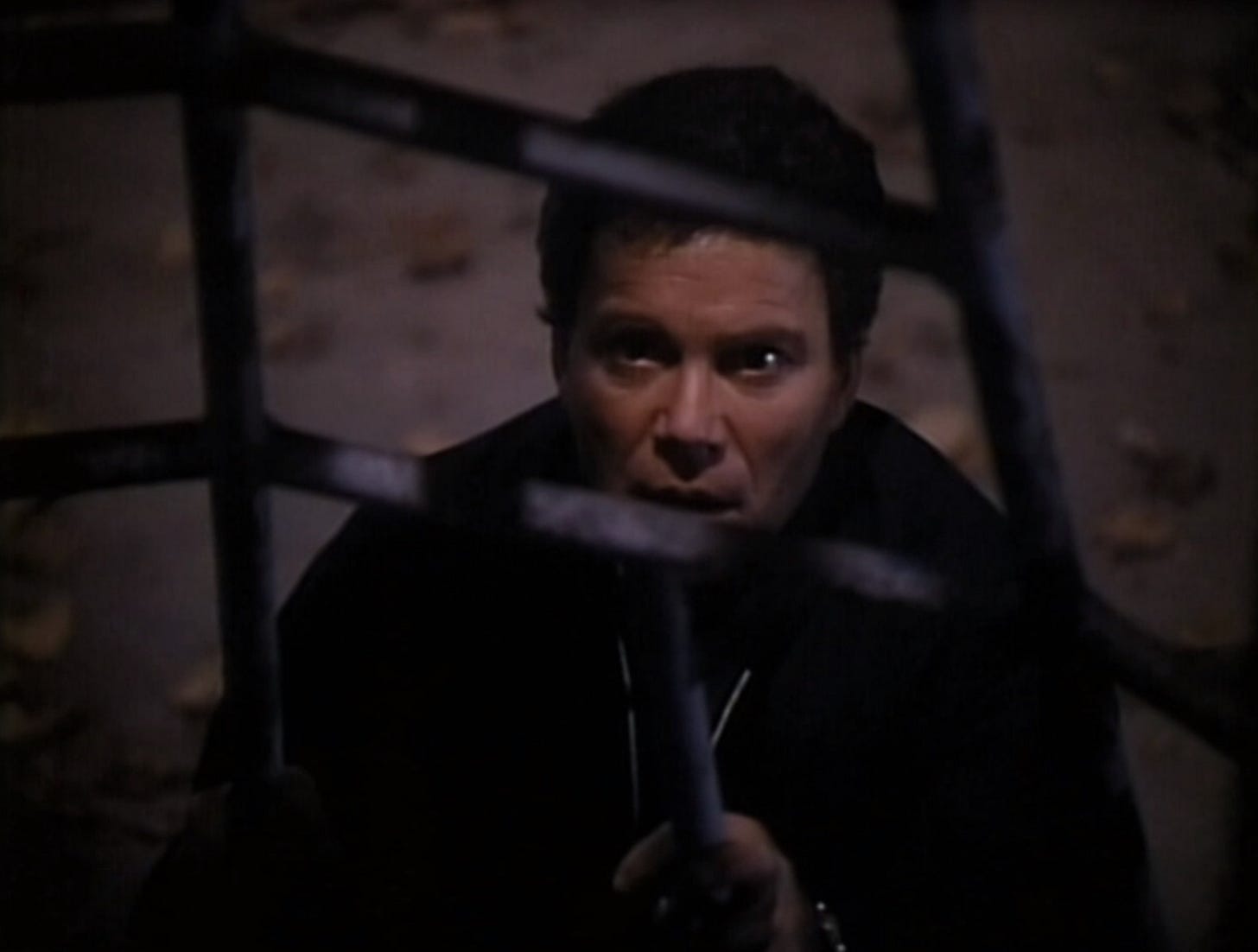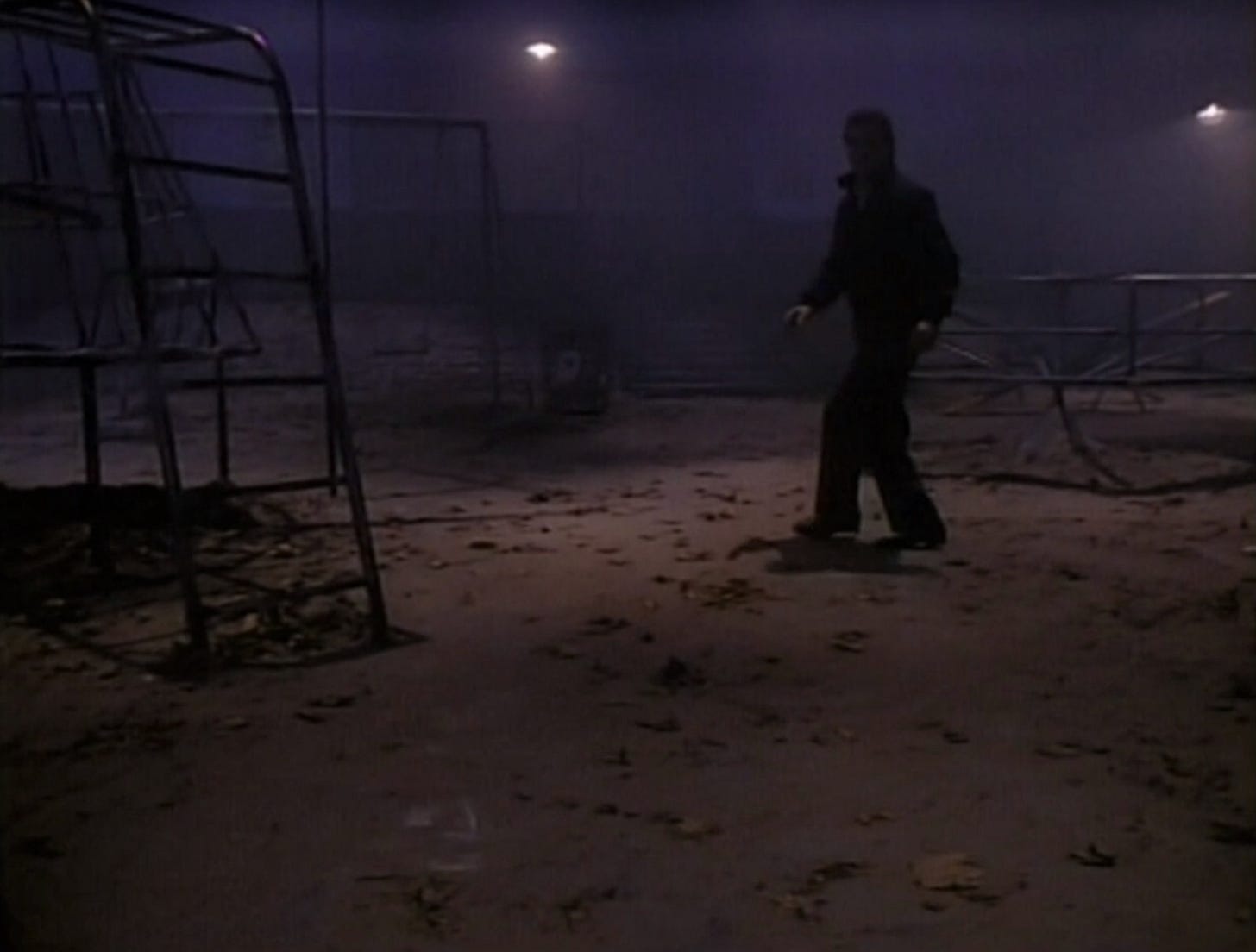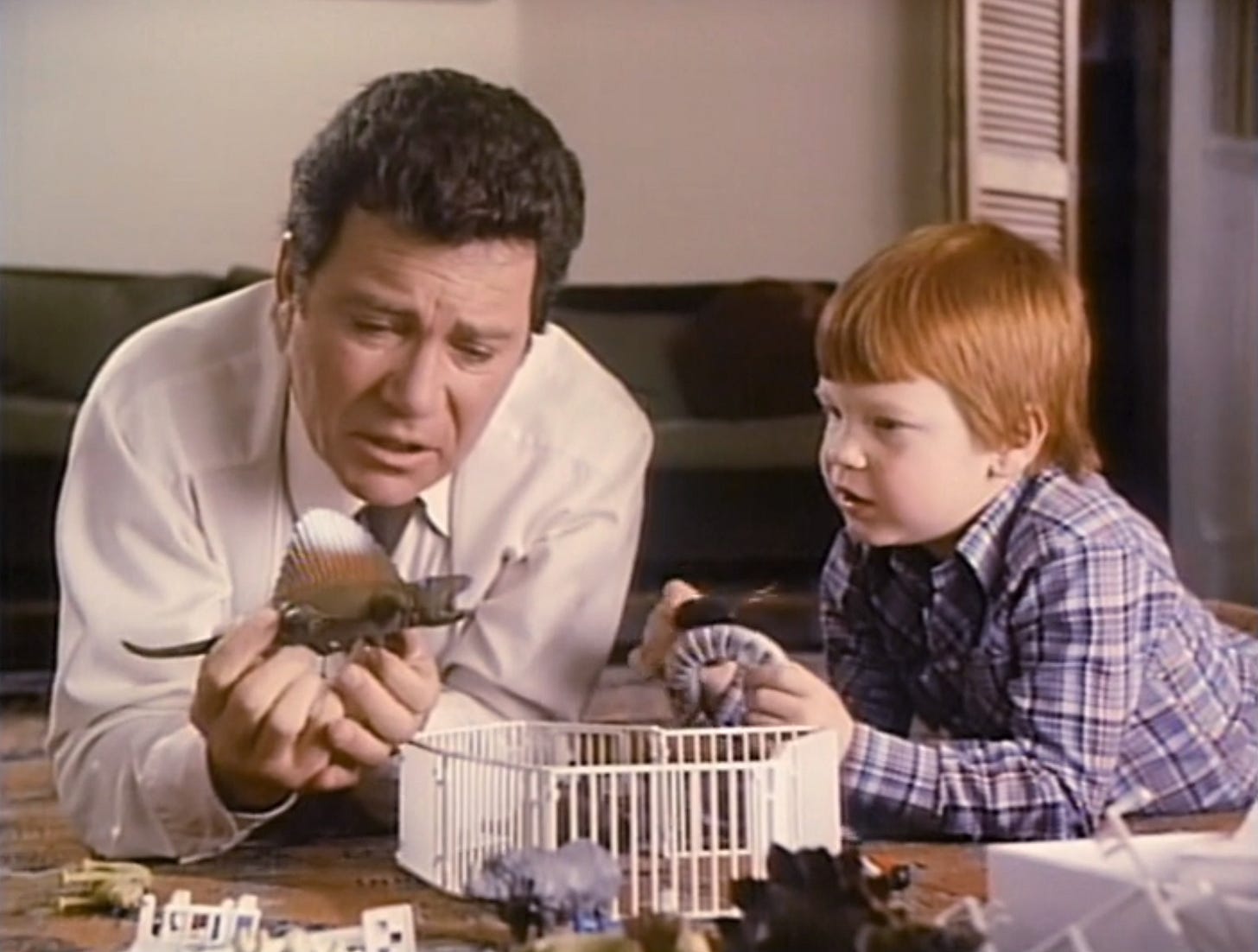Ray Bradbury Theater: “The Playground”
“I’m the father, I’m the daddy, I’m the pa.” Anthologized #4 takes a look at this Shatner-led Bradbury short.
Anthologized is my semi-regular series looking at episodes of anthology science fiction TV series. Episodes are typically picked randomly from a massive selection of episodes over the years, but I might occasionally pick an episode to talk about.
Anthologized #4: Ray Bradbury Theater, “The Playground” (1985)
Ray Bradbury Theater (1985), Season 1, Episode 2
At its very best, speculative fiction is metaphor. This is not an unusual position, and it’s true of most great literature. Without regard to genre, few were as competent in metaphor as Ray Bradbury.
I came to today’s episode, “The Playground,” by chance. I rolled the 800-sided die that is my speculative fiction anthology TV spreadsheet and came upon an episode of Ray Bradbury Theater, and on my way to the randomly selected episode, I stopped early. A thumbnail of William Shatner was arresting. His career in speculative fiction has been long and varied, but he’s proven his ability to leave an indelible mark in his performances.
From the opening minute, this story feels different — haunted, but not in a supernatural way. There’s only sparse dialogue early on, with Charles, played by Shatner, only getting into major story beats in the seventh minute. The story unfolds from there, but the imagery has set the tone. A dimly playground by night, packed with children, their taunting singing ringing in Charles’ ears.
Charles is a single father of a young child, Steve, and it becomes clear very early that he is made uncomfortable by children. The exception is his son, with whom we see Charles playing lovingly. At the behest of Charles’ sister, Carol, he goes to the titular playground, where he’s very clearly frightened by the throngs of children, seeing them as rough analogies of vampires and werewolves.
He returns home to his sister. “Tennis shoes. Blood. Dirty bandages. Their mean little faces with green jelly running out of their noses.” The discomfort is clear, but more, it’s obvious there’s something deeper here. Shatner is at his most believable: “I wish there was some way I could stand in for him. Take the shots for him.”
Charles returns to the playground following his work commute, and it’s on that commute that we learn there’s dissatisfaction in his job. It’s a supplementary piece of knowledge, but it paints a picture of Charles’ life. When he returns him home and puts Steve in bed, we see Charles longingly looking at a photograph of who is presumably his wife. We’re not given any specifics, but the detail is clear all the same: There is unresolved grief and trauma here.
We’re shown a flashback of Charles’ life as a young child, bullied and running from neighborhood children, banging on the door of his home, calling for his parents.
Sometimes after school, I would run from them, hoping to find some place in the house to hide. But mom and dad were still at work, and the front door was locked, and I was trapped. Those mean little faces were always there, waiting, so I ran. I ran to the playground, tried to find some place to hide — to escape. But there was no escape. I began to crawl inside my mind to get away. The more they punished me, the deeper inside I went.
Shatner’s iconic halting performance can be overwrought at its worst, but it is something altogether different here. We feel Charles’ traumatic experiences at the playground, and we know that the playground is not the whole story.
We see more long, steady shots of Charles at the playground, only his eyes illuminated. He speaks, as if to the ghost of his childhood bully, Ralph, telling him to leave his son alone. We even see Ralph for a brief moment, menacing his target with a large stick before he throws it at a light bulb, shattering it.
He takes his son to the playground: “I’m the father, I’m the daddy, I’m the pa,” Steve chants. The children at the playground stand, staring at Charles and his son, as they go to a tall slide. “You are me, you are Steve,” Steve tells his father. “I am Steve — yes, yes.”
The surrealist qualities ramp up here, with Charles climbing the slide, repeating, “I am Steve,” his son repeating “I’m the father, I’m the daddy, I’m the pa.” Charles, seeing his childhood bully, is pushed down the slide by his son. Following the descent, Steve is tortured by the throngs of children, and Charles, watching, goes to a swing before retreating, Steve weeping and watching. Charles waves from a distance, we see the horror images of vampire children again, and the episode ends.
Parsing this episode is difficult. We’re never given a real sense of reality, especially at the end. Was the ritualistic chanting of Steve and his father some sort of magical construct, swapping their bodies? Does Charles instead take his son to the playground, leaving him behind to be bullied relentlessly? What are we to make of all this? There’s no easy answer here, and it’s what gives “The Playground” its haunting atmosphere. We’re left with questions unanswered, and it makes the story work.
The whole thing is cast through a grief-stricken lens, with Charles apparently never having dealt with his childhood, nor presumably the death of his wife.
Shatner’s performance here is as good as it gets in these shows. He’s iconic and recognizable. His characters typically exude confidence and competence, but here, we’re left with Charles as a man struggling under the weight of fatherhood and his career.
Let’s come back to the metaphor, as I mentioned above. Is it about struggling to cope with loss or dealing with the trauma of childhood? Or, perhaps, is it more acutely about finding the right balance as a parent between stepping in to protect your child and allowing them to learn, as his sister Carol intimates? It is perhaps a mix of the two, and we are left uncertain as to the intention, the reality and the unreality of the story.
The original story by Bradbury (who also wrote the screen treatment) makes the reality more clear. There is a magical quality to the playground, and we know with certainty that Charlie and his son trade places. The story is more clear about things, but there must be a reason Bradbury himself treated the story differently on the screen. His own adaptation obfuscates where the story made clear, and I think that’s what makes this a great episode.







